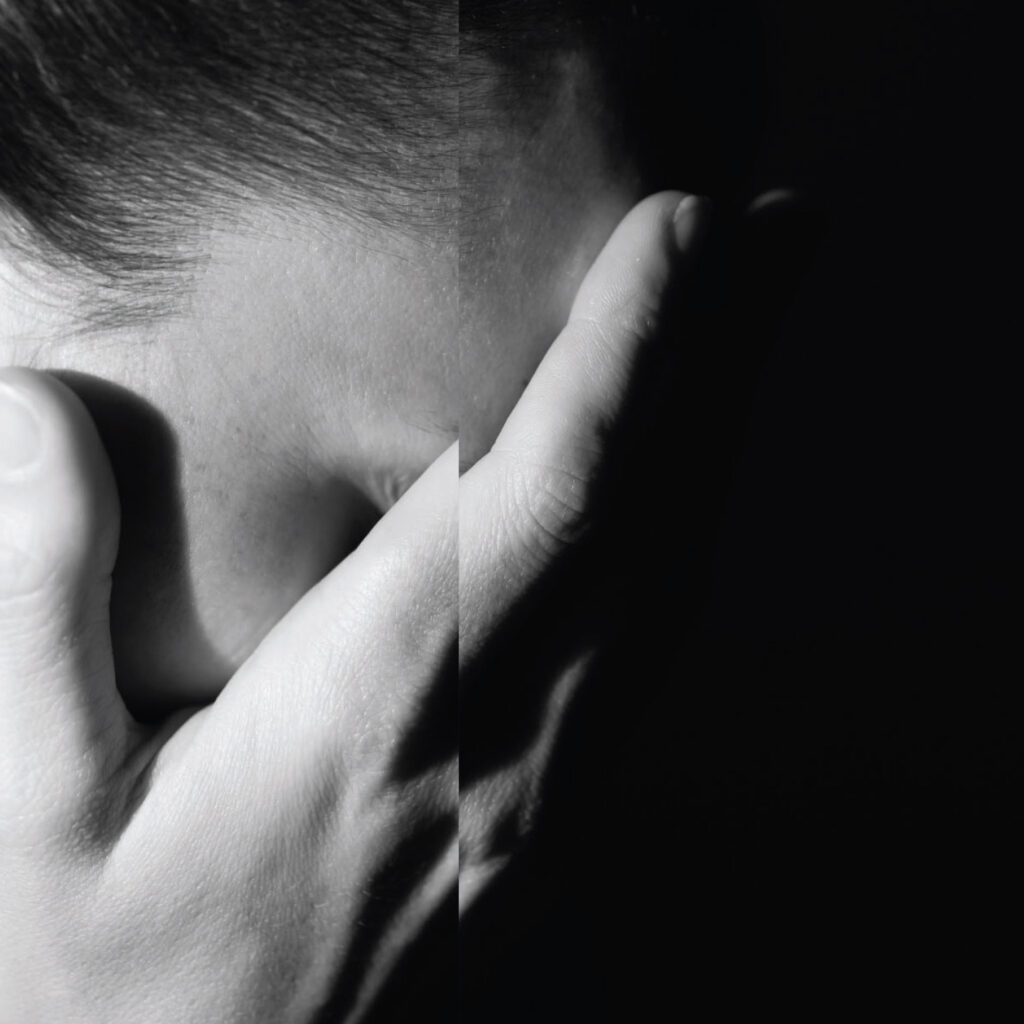Typically, when we think of an abusive relationship we think of physical violence. Yet, abuse comes in many forms and one of the most harmful is emotional abuse.
Emotional abuse is when someone inflicts harm to another person’s emotional and psychological well-being. “It boils down to patterns of power and control,” says Ani Hernandez Johnson, counselor with the Partnership for Families, Children and Adults.
Emotional abuse can be difficult to recognize because people tend to avoid talking about it. Often, victims can’t even identify when it’s happening – the “bruises,” after all, are invisible. Yet, emotional abuse really is abuse, and in some cases, it can even be more psychologically harmful than physical abuse.
“Many people have no clue they are being abused, because it’s so subtle,” says Whitney Toothman, counselor and director of social services at Parkridge Valley Adult and Senior Campus. “Often, the perpetrator is simultaneously very charming, which makes it a confusing cycle for the victim.”


What does it include?
Emotional abuse is not defined by a single act, as with physical or sexual abuse, but rather by a pattern of behavior. Emotional abusers may humiliate, insult, degrade, and isolate their partners. Their verbal abuse may include insults, screaming, profanities, name-calling, or put-downs.
And yet, many emotionally abusive behaviors are far subtler than yelling. Abusers may tell their partners what to wear or do, treat them like children, limit their contact with others, or control their finances and schedule. They may criticize and judge their partners, acting superior in intelligence. “Much of it resides in more subtle tactics like shaming, intimidation, belittling, and emotional manipulation,” says Toothman.
Abusers may “stonewall” victims, periodically ignoring their presence or attempts to make conversation. They may constantly point out flaws, use biting sarcasm, or exhibit jealousy over the person’s other relationships. They may blame victims for their own problems, demean their ideas or interests, or make their love and acceptance conditional. “This keeps the victim hopeful that things will change and get better, when in reality it cements the pattern of control,” Johnson explains.
Sometimes, abusers will cast themselves as victims and use this as an excuse to victimize others. On other occasions, they may even go as far as to make threats. For example, they may threaten to leave, commit suicide, or harm themselves if their partner doesn’t meet their wishes or demands.
What is the difference between emotional hurt and emotional abuse?
We are, all of us, imperfect people. And if two people are in a close relationship long enough, they will inevitably say or do hurtful things. This does not necessarily mean they are emotionally abusive.
So how can you tell the difference? Keep in mind that a healthy relationship is based on mutual love and respect. When someone in a healthy relationship does something hurtful, this action is outside the norm. In other words, the person is usually caring and respectful, and you have come to expect this behavior. Additionally, when they do hurt you, they are able and willing to recognize their action as hurtful. They empathize with your hurt, take responsibility for their actions, apologize, and attempt to right the wrong. Their pattern is to treat you with love and respect, and they are willing to grow and change.
In an abusive or toxic relationship, however, hurtful or manipulative words and actions are the norm. One person follows a cyclical pattern of control, humiliation and/or destructive behavior and does not take responsibility for the harm they have caused. Abusers may not acknowledge or recognize their actions or words as harmful. Or if they do, they may shift blame for their abusive behavior and its consequences to the victim.
Sometimes, abusers will pretend the abuse never happened until confronted. When confronted, they may minimize their abusive actions or turn the tables. For example, they may say “it’s your fault” or “you deserved it” or “you are being too sensitive.” They may accuse you of blowing things out of proportion or imagining things.
Remember: an abusive relationship has a self-interested and insecure person at the helm. That person may have a habit of apologizing and saying they want to change, and yet time will show they are not interested in changing their behavior. Whether they are conscious or unconscious of their abuse, their actions dominate and seek to “win” the relationship. And for the abuser to “win,” the victim must lose.



What are the effects of emotional abuse?
Emotional abuse can have a long-term negative impact on someone’s self-esteem and confidence. Often, victims become depressed, anxious, or suffer from trauma-related symptoms. They may find it difficult to trust others. Dealing with this kind of non-stop emotional turmoil can cause enormous amounts of stress.
“Some victims of domestic violence say emotional trauma can be worse than physical abuse, because it has a longer-lasting effect,” says Johnson.
The heart of the issue is that emotional abuse breaks down a person’s sense of self. It makes them feel insignificant, unworthy, and unlovable. They may struggle with crippling self-doubt and have a difficult time trusting their own thoughts, feelings, and experiences.
Sadly, victims often blame themselves and internalize or minimize the abuse. Some question their own sanity, wondering if they are the one who is unstable. Others think they deserve it as punishment for their own unworthiness. Still others refuse to believe the person they love is capable of such behavior. Sometimes, the effects are even downplayed by people around them. Between the minimizing and the self-blame, victims often have a hard time explaining why they feel so bad. Many stay in emotionally abusive relationships because they are unable to pinpoint or name the abuse.
Signs You May Be in an Abusive Relationship
- feel afraid of your partner much of the time?
- avoid certain topics out of fear of angering your partner?
- feel that you can’t do anything right for your partner?
- believe that you deserve to be hurt or mistreated?
- wonder if you are the one who is crazy?
- feel emotionally numb or helpless?
I think I’m being emotionally abused. What can I do?
The first step is to recognize emotional abuse for what it is. Learn how to name it. Once you have named the abuse for what it is, you can work to cope in as healthy a manner as possible.
“Abuse is not what real love looks like and you don’t have to live that way,” says Toothman. “Someone who really loves you would want to build you up, not tear you down.”
Remember that abusers have a distorted perspective of themselves and the world. Understanding this will help you realize their behavior is in no way your fault – nor can your love inspire them to change.
If you have questions or are weary of feeling confused and powerless, don’t be afraid to seek answers. Make an appointment with a professional counselor or therapist, or contact the free 24/7 hotlines listed below to discuss your situation. When it comes to emotional abuse, no two situations are the same. A professional can help you identify patterns of abuse in your own life, take steps toward healing, create a safety plan, and if necessary, make a strategy for leaving the relationship.
Don’t wait. Call today!
Need Help?
The following hotlines are answered 24 hours a day, seven days a week. Victims of emotional abuse can call any time to inquire about abuse, shelter, crisis counseling, support groups, and more.
The Partnership for Families, Children, and Adults is a great place to seek support for any type of abuse. The nonprofit strives daily to help victims heal and achieve the freedom they deserve from past or present experiences.
The National Domestic Violence
Hotline is available to anyone who has been affected by relationship abuse, including those who are currently in abusive relationships, those who are working to heal, and friends or family of victims and survivors.



Whitney Toothman, LPC-MHSP
Director of Social Services, Parkridge Valley Adult and Senior Campus



Anaely (Ani) Hernandez Johnson, LPC-MHSP
Bilingual Therapist, Partnership for Families Children and Adults

